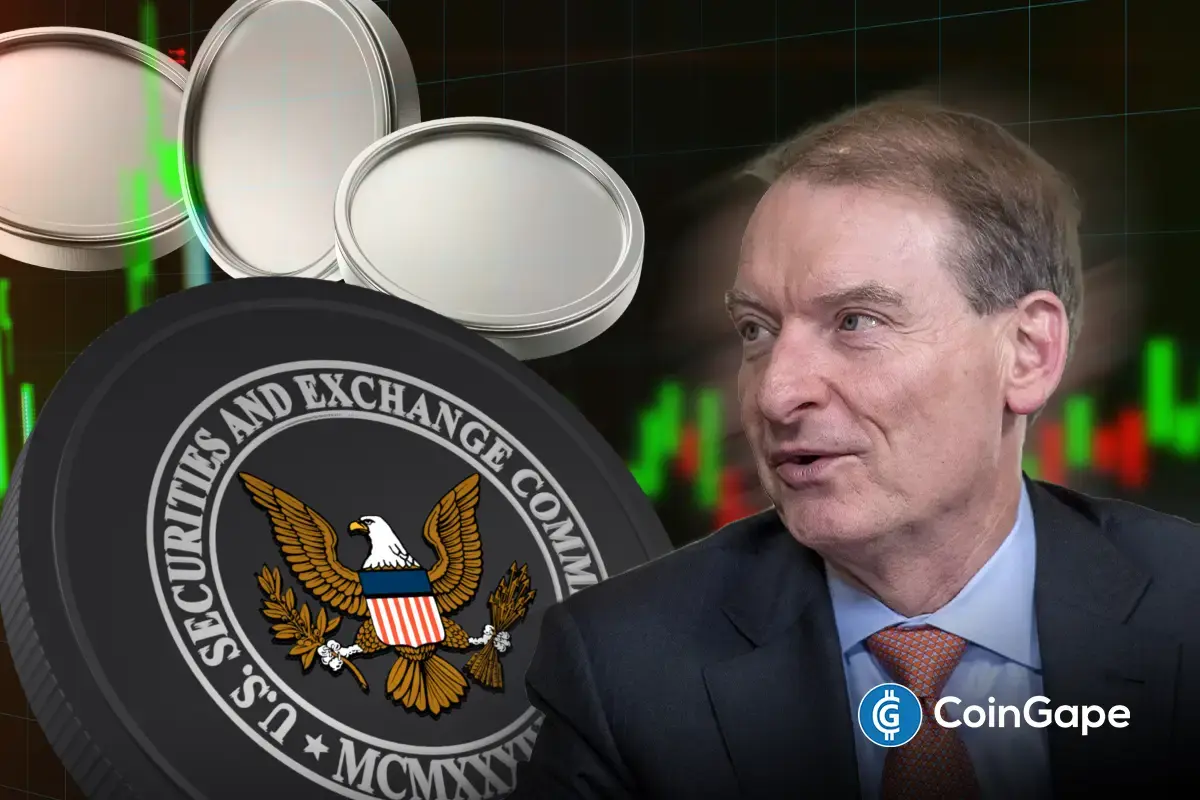Regulation
Ex-FTX execs Nishad and Gary to be sentenced in October and November


- Nishad Singh and Gary Wang to be sentenced for FTX fraud on Oct. 30 and Nov. 20.
- Their cooperation in Sam Bankman-Fried’s trial may lead to reduced sentences.
- Ryan Salame got 90 months for non-cooperation; Bankman-Fried got 25 years.
Former FTX executives Nishad Singh and Gary Wang, key figures in the dramatic collapse of the FTX cryptocurrency exchange, are scheduled to be sentenced later this year.
US District Judge Lewis Kaplan has set Singh’s sentencing for October 30 and Wang’s for November 20.
Both played pivotal roles in the events leading up to and following the downfall of FTX, one of the most high-profile failures in the cryptocurrency industry.
The fall of FTX
FTX, once a leading cryptocurrency exchange, crumbled in 2022 amidst allegations of massive fraud and financial misconduct.
Nishad Singh, the former engineering director, and Gary Wang, FTX co-founder, were instrumental in the company’s operations. Their actions, along with those of other executives, contributed to significant financial losses for users and investors.
Singh and Wang pleaded guilty to multiple felony counts, including fraud and money laundering, with Singh’s guilty plea recorded in February 2023. They have cooperated extensively with US authorities, which might influence their sentencing outcomes.
During the criminal trial of former FTX CEO Sam Bankman-Fried (SBF), their testimonies were crucial.
Singh and Wang’s revelations about the inner workings of FTX and Alameda Research provided valuable insights into the extent of the alleged fraud.
Singh testified that Bankman-Fried had unilateral control over Alameda’s funds and highlighted his growing distrust of the former CEO.
Wang’s testimony shed light on the exchange’s use of hidden code to misrepresent the value of its insurance fund, which failed to cover user losses.
Singh and Wang’s cooperation has led to speculation that they might receive reduced sentences.
Singh and Wang’s testimonies contributed to SBF’s conviction
The testimonies of Singh and Wang, along with that of Caroline Ellison, former CEO of Alameda Research, significantly contributed to the conviction of Sam Bankman-Fried.
Judge Kaplan sentenced Bankman-Fried to 25 years in prison, marking one of the harshest penalties in the cryptocurrency industry to date.
The detailed accounts from Singh and Wang painted a picture of systemic fraud and gross mismanagement at FTX, leading to Bankman-Fried’s downfall.
Ryan Salame, the former co-CEO of FTX Digital Markets, also faced legal repercussions. Unlike Singh and Wang, Salame did not cooperate with authorities, resulting in a 90-month prison sentence. His lack of cooperation and subsequent sentencing underscore the potential benefits of aiding investigations, which Singh and Wang might experience.
As Singh and Wang await their sentencing, the cryptocurrency community remains watchful. Their cooperation and the outcomes of their cases could set significant precedents for how justice is administered in complex financial fraud cases.
Meanwhile, Sam Bankman-Fried remains incarcerated at the Metropolitan Detention Center in Brooklyn, with his legal team preparing to appeal his conviction.
In the meantime, the FTX saga continues to unfold, with bankruptcy proceedings and class-action lawsuits still in progress, as affected parties seek justice and restitution.
Regulation
US President Donald Trump Signs First Crypto-Related Bill Into Law; Report

US President Donald Trump has signed a joint resolution that will repeal an IRS rule affecting decentralized finance (DeFi) platforms.
This legislation, which has passed through both the Senate and the House, aims to prevent the IRS from enforcing tax reporting requirements on DeFi protocols. The move is seen as a key development in crypto regulation.
Donald Trump Signs First Crypto-Related Bill Into Law
According to ex-Fox journalist Eleanor Terret, the US president Donald Trump has signed the resolution into law imminently.
The bill marks the first time a US president will sign a crypto-related bill into law. It comes after weeks of legislative activity, during which both chambers of Congress passed versions of the resolution with broad bipartisan support. The Senate passed the final version of the bill on March 26 with a 70–28 vote after the House approved it on March 11.
Overview of the Repealed IRS Rule
The IRS DeFi broker rule, introduced during the Biden administration, was designed to expand existing tax reporting requirements to DeFi platforms.
Consequently, these platforms are required to report gross proceeds from crypto transactions and provide identifying details about the parties involved. The rule was part of a broader effort to close tax gaps and improve oversight in the cryptocurrency sector.
However, the rule drew criticism from the crypto industry and some lawmakers. Opponents argued that the decentralized structure of DeFi protocols makes it difficult or impossible to gather user data or file tax reports. Many, however, said that enforcing such requirements would hinder development and discourage innovation in the blockchain space.
Congressional Action and Political Support
The resolution to overturn the IRS rule passed with broad support in both chambers of Congress. Although a similar resolution passed in the Senate earlier in March, a revised version originated in the House due to rules governing tax-related legislation. The final Senate vote on March 26 completed the process and sent the resolution to President Donald Trump.
Senator Ted Cruz, who introduced the resolution, stated that the IRS rule was “an attack on emerging technologies that could transform financial systems.” As a result, the legislation received support from lawmakers who emphasized the need for clear, innovation-friendly policies on crypto regulation.
David Sacks, the White House’s AI and crypto advisor, confirmed President Donald Trump supports eliminating the rule. Sacks said the administration aims to protect decentralized technologies from what it sees as overregulation.
Implications After Donald Trump Sign
Once signed into law by Donald Trump, the resolution will exempt DeFi platforms from complying with certain IRS tax reporting obligations. This will, as a result, give developers and operators of decentralized protocols more freedom to operate without facing regulatory penalties for noncompliance with rules they cannot practically follow.
The repeal also signals a shift in how federal policymakers view crypto technologies. With this bill, US President Donald Trump will formalize a new stance on crypto regulation that emphasizes technological growth and decentralized innovation.
Industry groups like the DeFi Education Fund have supported the resolution and called it a step toward more practical crypto policy in the United States.
Disclaimer: The presented content may include the personal opinion of the author and is subject to market condition. Do your market research before investing in cryptocurrencies. The author or the publication does not hold any responsibility for your personal financial loss.
Regulation
Cash App’s Block Inc Settles for $40 Million Over AML Failures For Crypto Platform

Block, Inc., the company behind Cash App, has reached a $40 million settlement with the New York Department of Financial Services (NYDFS). The penalty follows an investigation into the company’s failure to maintain proper anti-money laundering (AML) compliance.
The NYDFS found that Block had significant issues with its AML program, particularly with its handling of Bitcoin transactions and customer due diligence.
Block Inc. Settles for $40 Million Over AML Failures
According to the NYDFS, Block’s AML compliance program had several critical flaws. The regulator pointed out that Block failed to implement sufficient controls to prevent money laundering and other illicit activities.
The investigation revealed inadequate customer due diligence, especially regarding Bitcoin transactions, which allowed largely anonymous transactions to go unchecked.
According to Adrienne A. Harris, the NYDFS Superintendent, “Compliance functions require growth in order to scale with the size and scale of the company.” The department also pointed out that between 2019 and 2020, Block’s extent of growth inevitably brought about a backlog, particularly with transaction alerts and responses, which were not treated immediately. This led to more transaction volume flow, hence compromising the site’s capabilities and making it vulnerable to criminal activities.
Previous Settlements and Efforts to Improve Compliance
This fine is the second recent sanction of Block for alleged AML failings. Earlier this year, the company settled a similar issue by paying $80 million to 48 state regulators in January. Moreover, another firm, OKX, faced a $1.2M fine in Malta over allegations of breaching AML regulations.
Block, in a statement, also noted that “Cash App has invested large amounts of both financial and other capital into compliance remediation and improvements.” However, the company failed to accept the findings of the report produced during the investigation. Instead, it sought to assure customers that it had taken note of the violations and was working on fortifying its compliance mechanisms to avoid such mishaps.
As part of the settlement terms and conditions, Block’s management has to appoint an independent monitor. This monitor will be tasked with assessing the company’s compliance program progress. These measures will remain ongoing, as the NYDFS will monitor Block’s compliance with regulatory expectations moving forward.
Cash App Under Scrutiny as Crypto Regulations Tighten
Block, Inc. operates Cash App, a peer-to-peer payment service that also allows users to buy, sell, and transfer Bitcoin. Cash App has been regulated under the NYDFS as a virtual currency business since 2018.
The company’s growing role in the cryptocurrency market has made it subject to increased regulatory scrutiny, especially in light of the rapid rise in popularity of Bitcoin and other digital assets. However, addressing Bitcoin’s status, Jack Dorsey warned that limiting BTC’s use case to a digital equivalent of gold could lead to its “irrelevance.”
Concurrently, in addition to settling the latest AML case, Block recently launched a new open-source toolkit aimed at helping companies better manage their Bitcoin treasury holdings. The toolkit includes a corporate Bitcoin holdings dashboard and a real-time BTC-to-USD price quote API.
Disclaimer: The presented content may include the personal opinion of the author and is subject to market condition. Do your market research before investing in cryptocurrencies. The author or the publication does not hold any responsibility for your personal financial loss.
Regulation
US Senate Confirms Pro-Crypto Paul Atkins As SEC Chair

The US Senate has finally confirmed Donald Trump’s nominee, Paul Atkins, as the next US Securities and Exchange Commission (SEC) Chair. This development is significant as Atkins has promised to provide regulatory clarity for the industry, which was lacking under past Chair Gary Gensler’s administration.
US Senate Confirms Paul Atkins As SEC Chair
In an X post, Journalist Eleanor Terrett revealed that the US Senate has confirmed Paul Atkins as the next SEC Chair. The Upper Chamber voted 52 to 44 in favor of Atkins’ nomination for the SEC role.
Pro-Bitcoin and Republican Senator Cynthia Lummis also confirmed this development, sharing her excitement about Atkin’s confirmation as the SEC Chair. The Senator revealed her discussion with him about digital asset legislation and affirmed that she is confident that his leadership will bring positive change.
As CoinGape reported, Paul Atkins had promised during his nomination hearing to prioritize providing regulatory clarity for the crypto industry. The incoming SEC Chair also promised to repair the Commission’s image following Gensler’s infamous regulation-by-enforcement approach.
Paul Grewal, the Chief Legal Officer (CLO) of the top crypto exchange, Coinbase, also congratulated Atkins on his confirmation. He stated that more progress is “sorely needed” after four years of regress.
Disclaimer: The presented content may include the personal opinion of the author and is subject to market condition. Do your market research before investing in cryptocurrencies. The author or the publication does not hold any responsibility for your personal financial loss.
-

 Regulation24 hours ago
Regulation24 hours agoCash App’s Block Inc Settles for $40 Million Over AML Failures For Crypto Platform
-

 Bitcoin23 hours ago
Bitcoin23 hours agoFlorida Bitcoin Reserve Bill Passes House With Zero Votes Against
-

 Market23 hours ago
Market23 hours agoFuser on How Crypto Regulation in Europe is Finally Catching Up
-

 Altcoin23 hours ago
Altcoin23 hours agoDogecoin (DOGE) Reclaims Previous Breakdown, Will This Mark The Bottom?
-

 Market22 hours ago
Market22 hours ago3 Bullish Altcoins Surging After Trump’s Tariff Pause
-

 Market20 hours ago
Market20 hours agoADA Price Surge Signals a Potential Breakout
-

 Bitcoin22 hours ago
Bitcoin22 hours agoThis is Why Hoskinson Thinks Bitcoin Will Hit $250,000 in 2025
-

 Altcoin12 hours ago
Altcoin12 hours agoXRP Price Risks 40% Drop to $1.20 If It Doesn’t Regain This Level

























✓ Share: